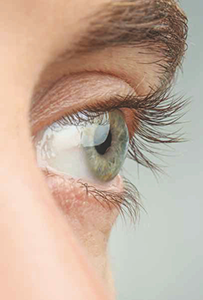
Do you wear contact lenses regularly? Senior Consultant Ophthalmologist Dr Jacob Cheng cautions that you should keep an eye out for these possible issues.
Singapore tops myopia rates worldwide
Here’s a chart-topping claim that Singapore really shouldn’t be proud of: we have the dubious honour of having one of the highest myopia rates worldwide. According to the Ministry of Health, over 65 percent of children are myopic by Primary Six, and 83 percent by the time they reach young adulthood. By 2050, it is projected that 80 to 90 percent of all Singaporean adults will be myopic.
With figures like these, it is no wonder that many turn to contact lenses to correct their vision. However, if worn for an extended period of time and with poor hygiene, it may lead to infections and other serious problems, says Dr Jacob Cheng from Eagle Eye Centre
Lack of lubrication and oxygen for your eyes
Some common complications caused by prolonged wear include dry eyes, droopy eyelids and corneal abrasions. Contact lenses prevent adequate moisture and lubrication of our eyes, especially to the surface of the cornea. This can thus damage the corneal surface, increasing the chances of abrasions and potentially serious eye infections.
Other complications include corneal neovascularisation, a condition where limited oxygen supply to the eye causes new blood vessels to grow on the corneal surface. These vessels gradually enlarge, invading the central cornea, and cause severe red eyes and eventual vision loss. Some may also develop a corneal ulcer or infectious keratitis. This results from abrasion, trauma, poor lens hygiene, contaminated lenses and overuse.
Symptoms of a corneal ulcer
Look out for sensitivity to light, tearing, redness and discharge. If it worsens, you may experience severe pain, white patches on the cornea and reduced vision. If left untreated, you can even suffer severe loss of vision or blindness. Other consequences include corneal scars and poor vision that cannot be corrected with glasses. At this stage, even corneal transplants may not completely restore your vision.
Treatment for corneal ulcers
Extensive antibiotics is needed to treat corneal ulcers. In serious cases, you may require hospitalisation. Even aftertreatment, corneal scars can still form and you may require a corneal transplant to recover some vision. The bad news is if you have had a corneal ulcer, you face greater risk of developing it again. Thus, patients should discontinue wearing contact lenses.
Contact lenses can offer you convenience and some may even treat fancy coloured lenses as a fashion accessory. However, wearing contact lenses puts you at risk for potential injury
Protect Your Peepers!
Here are three tips to using contact lenses responsibly.
DO practise good hygiene
Avoid bathing or sleeping with contact lenses. These activities may lead to a higher risk of infectious keratitis, says Dr Cheng.
DO use daily disposable contact lenses
Using daily disposables are recommended for good hygiene purposes. But if you feel any discomfort, redness, excessive tearing and blurring of vision, stop wearing the lenses and discard them immediately.
DO have a back-up pair of spectacles
If you suffer from the symptoms above, lay off the contact lenses for a few days to allow your eyes to recover. Stick to your glasses in the meantime. If your symptoms persist, consult an eye specialist immediately
Article contributed by Dr Jacob Cheng Senior Consultant Ophthalmologist Eagle Eye Centre Pte Ltd (EEC) Medical Centre D #06-57/58/59/60/61/62